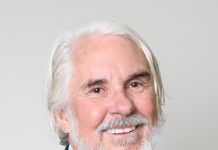Masters of Time

On a recent Saturday we walked up the street for the memorial service for our neighbor Bill Ives. Friends and family gathered under a beautiful tent that had been erected in front of the Ives home to work out together what missing him means.
His daughter Alexis beautifully applied the life her father had led to the universality of the human dilemma—our time is limited, every day, every year, every life.
“In my head keeps echoing ‘time’; how we spend it, who we spend it with, how quickly it can pass or how slow it can seem,” she confided.
I reflected on how differently time is perceived in the various stages of our lives—teenagers who stay awake until three a.m. and sleep until noon, still exploring how to use their time and appearing, to the more elder, to be wasting much of it. Waiting to be 16 to be able to drive, to be 18 to be considered an adult, or to be 21 to assume adult vices. Having fun with their friends, deciding priorities, considering what kind of person they want to be, or maybe falling off track and trying to get back on again.
Thinking of turning 30 and feeling over the hill and growing out of youth. Or 40 when we wake up to the idea that perhaps our life is half over, and question whether our accomplishments meet our expectations. Fifty when death is thought of more than we are comfortable with. Can’t keep it out of our minds. The idea of aging applying to us becomes an onerous burden. Sixty when we apply ourselves to staying as young as possible as long as possible—fitness, sensible diets, taking time to explore the world and do all the things we’ve always wanted to do. Then there’s the feeling that time is running out, the list is long and time ahead is uncertain but undoubtedly too short. Crowding every day. And then at last we hope there is the feeling of being at peace with a life well lived.
Sometimes lives are cut short too soon. Bill was robust, enthusiastic, a person who was generous with his family and his community. His life was brought unexpectedly to a close, yet he used well the time he had. Bill was a “master of time,” said his daughter.
“It seems impossible that with how many lives he touched, how many people he has helped, cared for and loved, how many places he’s traveled to, how many thick history books he’s consumed – that he had the same amount of hours in every day that we all do,” she added.
This inspires us to wonder why we should spend any of our precious moments doing anything but something positive. On the spectrum of healthy use of time, complaining is I think, at the bottom. Cooking for the homeless, picking up trash, talking helpfully with tourists, joining together to plant flowers where there are weeds—these are ways of dealing with things we may be fretting about. Urging city policies that do not rely on resident complaints for their effectiveness will free us for more positive approaches. Spending our moments with caring smiles instead of complaints can make us also masters of time.
Landscape architect Ann Christoph previously served on the City Council.




